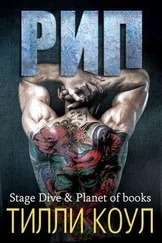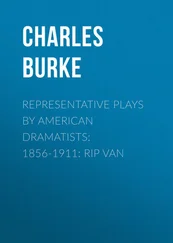He was paid to risk his life if necessary, but that hadn’t made it any less frightening when he was faced with the imminent prospect of death. If Taban hadn’t got away, who knows how long it would have taken the SAS to find the compound. And by then he might well have been tortured, or murdered, or both, by the fanatics who’d taken him captive.
He owed a lot to the African boy, whom he’d seen again on the French corvette. He had even been able to help him after explaining to the French crew that he owed his life to Taban. The Captain – was it Thibault? Some name like that – had understood at once, and when Martin Seurat had come aboard, the two of them had talked about Taban and promised Dave that they would do their best to help him stay in France, where he could get an education. Dave was glad he had done something for the boy, and he had promised to keep in touch with him through Martin Seurat.
As they sailed smoothly on down the coast of Italy he pushed the buzzer on the table in front of him. When the waiter came, he ordered a gin and tonic – a large one.
The days wore gently on. The ship called at Naples and Dave stirred himself enough to join the organised trip to Pompeii, where he listened to the guide’s account of the eruption of Vesuvius, and bought some postcards in the gift shop, which he didn’t send.
A few days later, as he was sitting on deck at his favourite table, he looked up and saw Mount Etna silhouetted against a deep blue sky, snow-capped and majestic, with a trail of smoke wafting from one of its volcanic cones. The waiter brought his drink, and when he’d gone Dave raised his glass. This volcano was alive; so, by the skin of his teeth, was Dave.
Berger went to meet Hal Stimkin at what the CIA man now referred to as their ‘watering hole’. Fortunately this would be the last time Berger would have to drink with him in the bar of the Venus de Milo; the last time he’d have to come running when Hal Stimkin called. Goodbye, Athens, he thought cheerfully, and good riddance to his former employer, the CIA.
Stimkin was already there on his usual bar stool. Berger sat down next to him, ordered a beer, and came right to the point.
‘I’ve got news for you,’ he said.
‘Good or bad?’
‘Good for me.’ He took a long swallow of his beer. ‘My boss back in London’s resigned.’
‘Oh?’
‘Yeah, and the thing is, they’ve offered me the post and I’ve accepted.’
‘Congratulations,’ said Stimkin matter-of-factly. Berger was slightly taken aback that he didn’t seem more surprised.
‘So you see, Hal, this is our valedictory session. I’ll be leaving Athens next week. And it’s going to be my farewell to Langley too. In my new job it just wouldn’t be right for me to moonlight for you guys. I’m sure Langley will understand.’
‘Oh, I don’t know about that,’ Stimkin said disconcertingly. ‘You see, news of your appointment has already reached Langley and they’ve passed it on to Grosvenor Square. I had a call from the Head of Station there just this afternoon. Guy called Andy Bokus… he can’t wait to meet you. Andy isn’t everybody’s cup of tea, but I’m sure you two will get along like a house on fire.’
Berger put his head in his hands and groaned. Stimkin patted him on the back. ‘Cheer up, Mitchell. Remember what they say, don’t you? You can take the boy out of Langley, but you can’t take Langley out of the boy.’
That evening, Liz and Martin had supper in his flat in Paris. Neither of them wanted any more excitement after the stress and frantic activity of recent weeks.
They had spent several hours that afternoon at the Santé prison, talking to Amir Khan. Martin had already told him about events in Birmingham – how Malik, his old friend and comrade at the mosque, had tried to blow himself up at a pop concert. Amir had remained silent, clearly shocked. It was as though, for the first time, he’d realised what the extremist views that both he and Malik had held, actually meant. How the logical end of them was the death of people, casually chosen, when they were doing no more than enjoying themselves.
Then Seurat added something else – that at the end, Malik had done his best to kill Tahira too – and Amir’s shock had turned to outrage.
With the news of his former friend’s betrayal, whatever doubts he might have had about his own recent collaboration with the security authorities disappeared in an instant. It was clear that the entire belief system by which Amir had recently lived had now collapsed. He had asked Martin Seurat how anyone could defend a cause which would slaughter the person closest to him in the world. And Martin replied that no one could.
So when Liz had arrived that afternoon, Amir Khan had listened quietly to the joint French and English proposal. He would be released from prison and would stay in France, under the protection of the security authorities there, who would give him a new identity and a place to live. In return he would help them by reporting on extremist Islamist activity. They did not spell it out in detail at that stage, but what Amir was being offered was a job as an agent, to be run by colleagues of Martin Seurat.
As Amir hesitated, trying to understand the implications of what they were saying, Liz added that there was something else she had to suggest. It was no longer safe, she said, for Tahira to live in Birmingham. She might well be suspected of having helped to prevent Malik’s suicide attempt, even if she had not been seen in the park with Liz or leaving in DI Fontana’s car. Tahira was longing to see her brother. Liz told Amir that she’d promised the girl she would arrange for her to come to Paris as soon as possible. But more than that, when Liz had suggested to Tahira that she might like to live in France too if Amir agreed to settle there, she had jumped at the idea. What did he think of that?
To the relief of both Liz and Martin, Amir had liked the idea. In fact he had been delighted by it, and grinned as he shook Liz’s hand when she said goodbye. ‘I hope we meet again – but not in a prison,’ were his parting words.
Liz had been looking forward to relaxing for a few days with Martin in Paris. But now, as she cleared the dinner plates from the table in the small dining alcove overlooking the square, she realised there were unresolved issues even here.
They were both tired. Martin had been closely involved in the planning that had foiled the last attempted hijack of the Aristides, and had flown an hour south to the French base at Toulon as soon as he’d heard that Dave and Captain Guthrie had been taken off the ship as hostages. Though they had been freed without any losses on the French or British side, it had been a close-run thing.
Liz was tired too, but not pleasantly so. She felt on edge. It wasn’t the recent operation or that afternoon’s conversation with Amir that was nagging at her. It was Martin. Well, not the man himself, but what he had come to represent. Since he had asked her to come and live with him in Paris, he had started to pose a threat to the one other love of her life – her job. For Liz, her work wasn’t just important to her; to a large extent it was her.
She sat down again at the table and Martin poured her another glass of Burgundy and offered the plate of cheeses they had carefully chosen that afternoon from Madame Lileau’s little shop around the corner. He was looking at her thoughtfully. He said, ‘You seem tired, ma chérie.’
‘I suppose I am. You must be exhausted too.’
He shook his head. ‘Having you here gives me energy.’
She smiled to acknowledge the compliment, but words were forming in her head. ‘Martin, you know, I’ve been thinking – ’
Читать дальше












